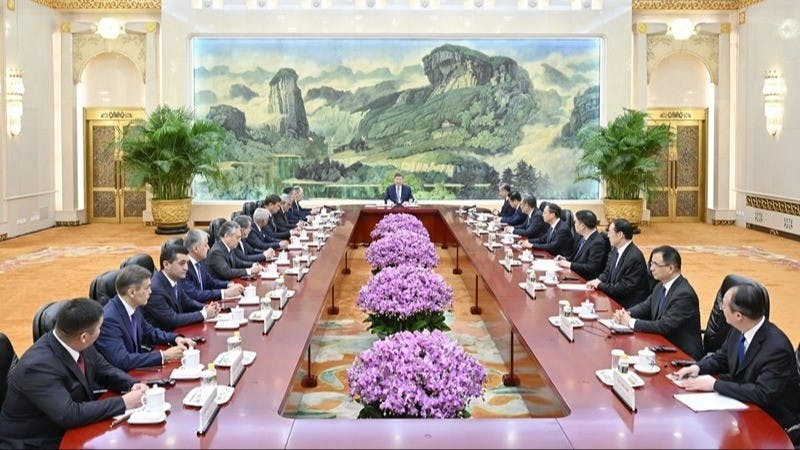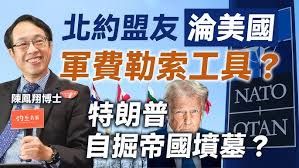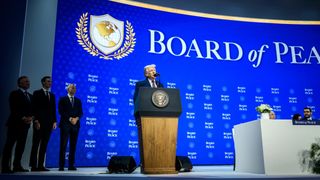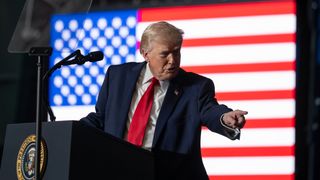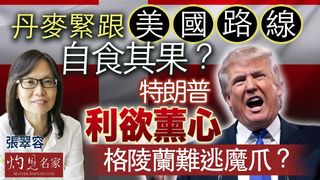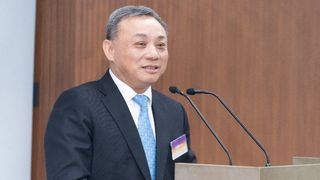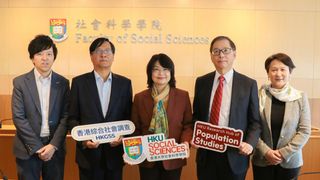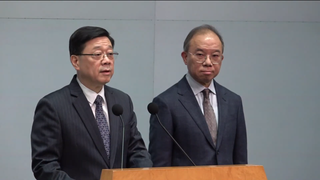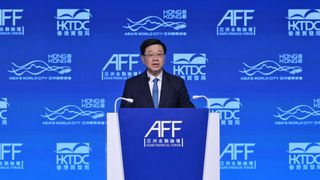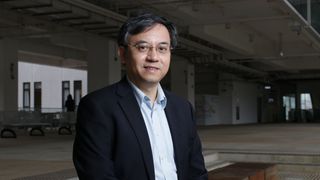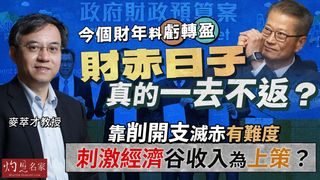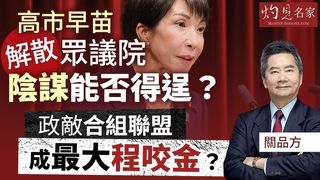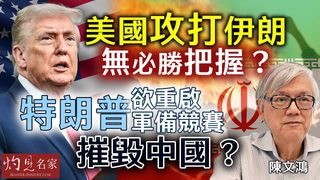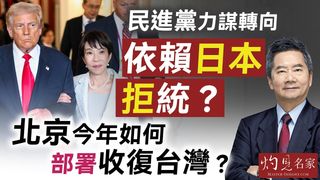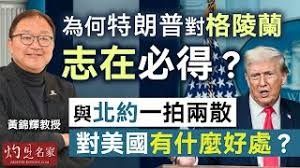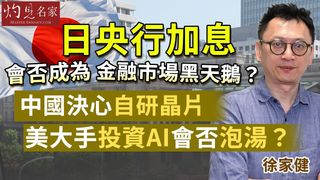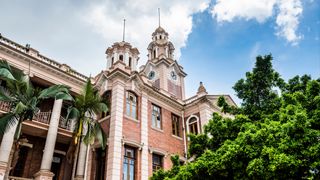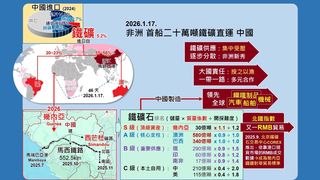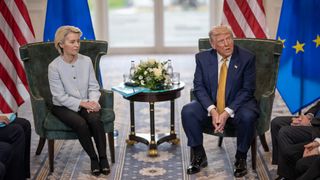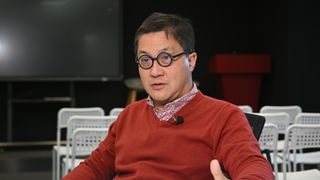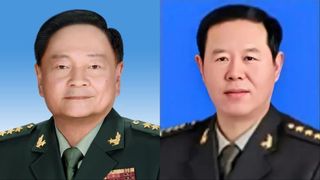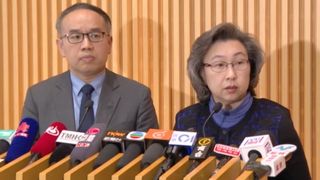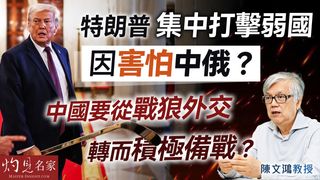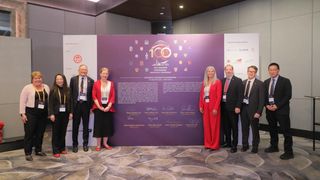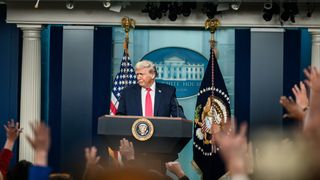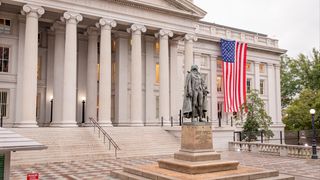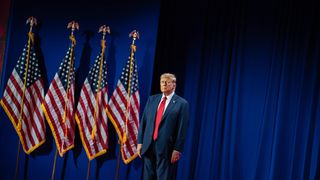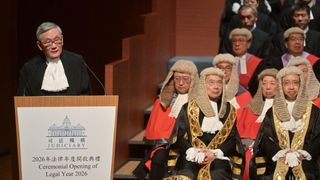早前舉行的上海合作組織外長理事會會議上,中國外長王毅跟其他外長與會期間的互動,顯示世界由美國主導的單極格局、轉向新興大國崛起的多極格局轉變下,上合組織將在日益動盪的世界局勢中發揮更加重要的作用。
王毅在外長會上提出五點建議:一是上合組織成員國要弘揚「上海精神」,提升組織凝聚力、行動力、感召力,深化互信,把追求共同利益、文明多樣性、互利共贏作為國際關係基本準則。
二是各成員國應安危共擔,夯實安全基石,特別是恐怖主義、分離主義、極端主義和跨國犯罪活動的威脅。三是各成員國應透過強化產業鏈、穩定供應鏈,加強在開發性銀行、貿易、投資、能源、互聯互通、科技創新、綠色產業、數位經濟、永續發展等領域合作,實現互利共贏,驅動發展引擎。
上合或成為去美元化新經濟平台
近期全球南方國家正在討論去美元化和使用本幣等具體細節,關於開發銀行的討論也值得關注。在此背景下,上合組織很有可能成為實現上述進程的新經濟平台。
第四,上合組織成員國應親仁善鄰,共建美好家園。王毅表示,中國將致力於同周邊國家建設友好、安全、繁榮的鄰里關係。這是北京睦鄰外交的一大特色,親仁善鄰應該成為成員國的共同遵循。
第五,上合組織成員國應在世界反法西斯戰爭勝利暨聯合國成立80周年之際,堅守正道,捍衛公平正義。這場活動恰逢中國紀念抗日戰爭勝利80周年,上合組織成員國根據中方提出的五點倡議,呼籲促進中東和平,並呼籲協助阿富汗恢復穩定與發展。
當美國特朗普政府第二任期內不斷推行對等和懲罰性關稅,引起各國不滿之際,此時上合組織外長會議達成初步共識,為即將於8月底在天津召開的上合組織峰會定下基調,具有重要的政治和外交意義。
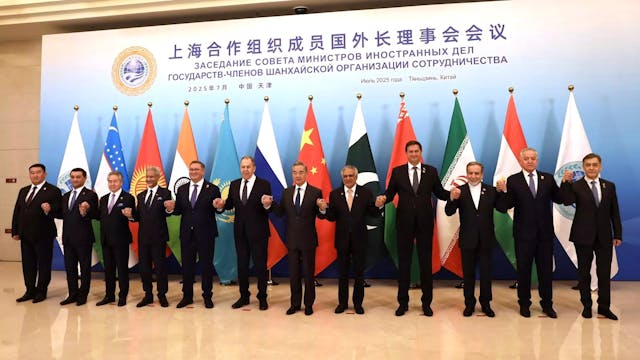
王毅隱晦批評特朗普貿易政策
在上合外長會議舉行前後,王毅多次講話提到保護主義抬頭,國際和地區衝突接連不斷,批評霸權主義和強權政治違背時代潮流。這些言論可以被理解為對美國貿易政策的隱晦批評。
據報道,特朗普政府正考慮對中國作出一些讓步,以便特朗普總統於2025年稍後時能與習近平主席會面。
令人關注的是,在上合組織部長級會議召開前,王毅於7月13日會見了俄羅斯外交部長拉夫羅夫。王毅表示,中俄雙方當前重點是籌備下一階段高層交往、深化戰略協作、促進發展振興,並一起應對日益動盪的世界帶來的挑戰。
拉夫羅夫表示,俄方願與中方在各領域密切合作,包括莫斯科支持中方擔任上合組織輪值主席國,以及即將在天津舉行的上合組織峰會取得成功。
目前尚不清楚拉夫羅夫與王毅在閉門會談中討論了什麼事情。不久前,西方媒體披露王毅曾向歐盟高級外交官表示,中國不能接受俄羅斯在烏克蘭戰爭中失敗,中國擔心俄羅斯一旦戰敗,美國將把全部精力轉向中國。
拉夫羅夫或派定心丸 俄不會戰敗
如果上述報道屬實,拉夫羅夫或許會向王毅保證,俄羅斯不會被擊敗,莫斯科期待北京在經濟和政治上給予持續的支持。
從王毅言論來看,中國不僅強調推進多邊主義與和平發展的周邊外交,而且還利用上合組織作為外交平台,促進成員國之間的互信與和平關係。上合組織框架內的這些外交舉措突顯了其複雜的利益網絡、聯盟以及對區域穩定的謹慎樂觀態度。
在全球不確定因素下,即將在天津舉行的峰會不僅有望將上合組織的合作機制進一步制度化,也自然成為成員國間理順各自雙邊和多邊關係的舞台。
會議焦點將集中在該組織如何應對迫在眉睫的安全問題,從邊境緊張局勢和反恐到經濟整合和技術夥伴關係。隨着上合組織共同應對全球力量平衡的轉變和經濟民族主義復甦,其在不同成員國之間促進共識和調解爭端的能力將受到密切關注。
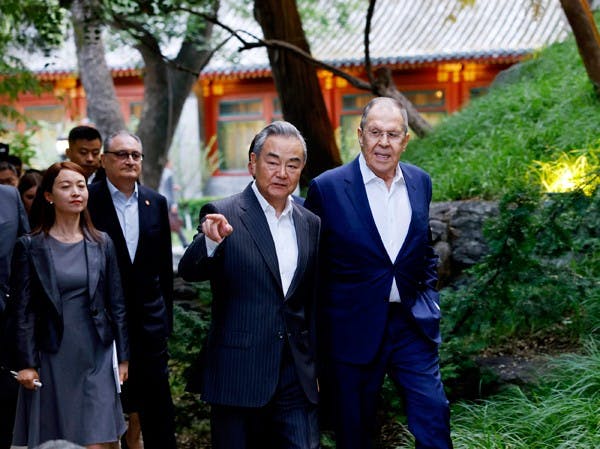
上合峰會可促進全球南方持續發展
在美國艱難應對日益多極化的世界和比以往任何時候都多的新興大國之際,在天津舉行的上合組織峰會很可能在鞏固經濟關係和促進全球南方可持續發展方面發揮關鍵作用。
中國和俄羅斯將在上合組織下一階段的轉型中扮演雙重領導角色。如果上合組織成員國建立新的開發銀行,這將引發一個逐步去美元化和使用本國貨幣的進程。
因此,美國及其盟友與俄羅斯、中國及其友好鄰國和全球南方支持者之間的經濟拉鋸戰,將比以往任何時候都更加突出和嚴重。這些高層會議的成果或許能為亞洲地緣政治的未來走向提供一些見解,屆時中俄將領導一個努力擺脫西方影響力、爭取更大自主權的集團。
當然問題仍然在於,上合組織是否能夠真正超越其內部不和,成為區域安全和經濟合作的典範。另外,隨着外界關注天津事態的發展,不同的國家利益是否將繼續挑戰其向心力。
The SCO Foreign Ministers Council Meeting in Beijing: Diplomacy and implications
Judging from the remarks made by Chinese Foreign Minister Wang Yi before and during the recent meeting of the Shanghai Cooperation Organisation (SCO) Foreign Ministers Council, and from the responses of some foreign ministers, the SCO is going to play more important functions amid the increasingly turbulent world in its transition from unipolarity formerly led by the US to multipolarity currently punctuated by the rising new powers.
On 15 July, Wang Yi chaired the meeting of the Council of the Ministers of Foreign Affairs of the SCO member states in Tianjin. He said that President Xi Jinping attached great importance to this meeting, and that he expected the SCO to continue achieving its mission and “shouldering the mission of the times” (see Chinese Foreign Ministry’s website, 16 July 2025). Wang’s meeting with the SCO foreign ministers aimed at preparing for the upcoming SCO Summit in Tianjin in late August.
During the ministers’ meeting, Wang Yi proposed a five-point plan. First, SCO member states should carry forward the Shanghai spirit that was laid out, meaning that they should strengthen their solidarity, deepen mutual trust, and make the pursuit of common interests, cultural diversity, mutual benefits as the basic norms in their international relations.
Second, all member states should improve security mechanisms and respond to security challenges, especially the threats from terrorism, separatism, extremism, and transnational criminal activities – a traditional spirit of the SCO and a “shared responsibility” of its member states.
Third, SCO member states should create development opportunities together through the enhancement of industrial and logistical supply chains and the increased co-operation in the areas of a developmental bank, trade, investment, energy, connectivity, scientific innovation, green industries, digital economy and sustainable development.
Analytically speaking, the discussion of the developmental bank deserves our attention at a time when some countries in the Global South have been discussing the details of de-dollarisation and the utilisation of their own currencies in economic transactions. It is quite likely that the SCO will become a new economic platform for countries in the Global South to drive the dual processes of de-dollarisation and the use of their own currencies in transnational economic transactions.
Fourth, SCO member states should consolidate good-neighbourhood policy and friendship. Here, according to Wang Yi, China will seek an amicable, secure and prosperous neighbourhood – a characteristic of Beijing’s good-neighbourhood diplomacy that also reaches out to SCO member states.
Fifth, SCO member states should uphold fairness and justice during the 80th anniversary of the victory of the World Anti-Fascist War and the founding of the United Nations – an event that matches China’s celebration of the 80th anniversary of the war of resistance against imperial Japan. The SCO member states, according to China’s five-point plan, call for the promotion of peace in the Middle East and the need to help Afghanistan to restore stability and development.
The preliminary consensus reached by the various foreign ministers of the SCO above is politically and diplomatically significant at a time when the SCO Summit will be held soon in Tianjin in late August, and at a crucial juncture when the US under the second Donald Trump administration has raised the eyebrows of many other countries through the utilisation of reciprocal and punitive tariffs.
In fact, Wang Yi made a remark critical of “hegemonism and power politics” that “are going against the trend of the times,” while “protectionism is surging and regional international conflicts are emerging one after another” (South China Morning Post, 16 July 2025). Such remarks can be seen as an implicit criticism of the US trade policy under the second Trump administration, which is, according to reports, considering some concessions to China so that President Trump will go to meet President Xi later in 2025.
It is noteworthy that before the SCO Ministerial Meeting, Wang Yi had met his Russian counterpart Sergey Lavrov on 13 July. Wang said that the focus of both China and Russia is to prepare for the next stage of higher-level exchanges, to deepen strategic coordination, to promote development and revitalisation, and to address challenges brought about by the increasingly turbulent world. Lavrov said that Russia is indeed willing to work closely with China in all areas of collaboration, including Moscow’s support of China as a rotating president of the SCO and the upcoming success of the SCO Summit in Tianjin.
It was unclear what Lavrov discussed with Wang Yi in their closed-door meeting shortly after the Western media had interestingly revealed that Wang had told a top diplomat in the EU that China could not accept a Russian defeat in the Ukrainian war, and that China was worrying that, if Russia were defeated, the US would turn its full attention to China (CNN, 4 July 2025).
If the reports above were true, Lavrov might assure Wang Yi that Russia would not be defeated, and that Moscow would expect Beijing’s persistent support economically and politically.
On 14 July, Wang Yi also met the Indian External Affairs Minister Subrahmanyam Jaishankar in Beijing. Wang said that while unilateralism and protectionism are challenging world peace, China’s relations with India remain harmonious and both countries help each other succeed (see Chinese Foreign Ministry’s website, 14 July 2025). Most importantly, Wang added that China and India stick to the policy of maintaining their good-neighbourhood relations, and that their relations do not target any third party.
Interestingly, on 23 June, Wang had met the Indian National Security Adviser and Special Representative for the China-India Boundary Question Shri Ajit Doval in Beijing (see Chinese Foreign Ministry’s website, 23 June 2025). Both Wang and Shri stressed the importance of good-neighbourhood and friendliness and the necessity of properly handling sensitive issues, like the border disputes. As such, Wang had already fostered some degree of mutual trust with Shri well before Jaishankar’s visit to Beijing in July – a good sign of harmonious Sino-Indian relations that are committed to enhancing mutual trust and achieving peace.
However, among the nine SCO members (India, Iran, Kazakhstan, China, Kyrgyzstan, Pakistan, Russia, Tajikistan and Uzbekistan), India and Pakistan had a brief territorial conflict in May over Kashmir where, according to India and the US, the “terrorists” from The Resistance Front (TRF) were allegedly responsible for the death of 26 tourists (The Hindustan Times, 18 July 2025). India launched Operation Sindoor on 7 May, targeting nine “terror infrastructure sites” in Kashmir. The operation led to a brief Indian-Pakistani conflict during which both sides not only used drones and missiles but also claimed victory. It remains to be seen how the two SCO member states – India and Pakistan – can and will manage their border disputes in a peaceful way in the coming years.
China has remained Pakistan’s friendly supporter and naturally avoids being embroiled in the Pakistani-Indian border disputes. During the three-day visit of the Pakistani Foreign Minister and Deputy Prime Minister Ishaq Dar to Beijing for the SCO Ministerial Meeting, he was told by Wang Yi that China supports Pakistan’s counter-terrorism work (Deccan Herald, 16 July 2025). Wang described China’s relations with Pakistan as “unique and time-tested,” adding that Beijing is eager to strengthen the development of the China-Pakistan Economic Corridor (CPEC) with high-quality and deeper co-operation in the areas of agriculture, industry and mining. During the Pakistani-Indian conflicts in Kashmir in May, China appealed to both sides to settle their differences through dialogue and to achieve a ceasefire.
In May, US President Donald Trump asserted that the US stopped a nuclear conflict between India and Pakistan by using trade as a crucial factor in de-escalating the tensions between the two countries (The Express Tribune, 12 May 2025). It was reported that US Secretary of State Marco Rubio spoke to the Pakistani leaders while Vice President J.D. Vance talked to the Indian counterpart, thereby de-escalating tensions from both sides.
In conclusion, judging from Wang Yi’s remarks and actions shortly before and during the SCO Ministers’ Council Meeting that prepared for the SCO Summit in Tianjin in late August, China is not only adopting a neighbourhood diplomacy of emphasising multilateralism and peace development, but also utilising the SCO as a diplomatic platform to foster mutual trust and peaceful relations among its members. These diplomatic manoeuvres within the SCO framework highlight a complex web of interests, alliances, and cautious optimism for regional stability. The upcoming summit in Tianjin is expected not only to further institutionalise the SCO’s mechanisms of co-operation but also to serve as a stage for the member states to navigate their intricate bilateral and multilateral relationships amid global uncertainties.
Attention will be focused on how the organisation addresses pressing security issues – ranging from border tensions and counter-terrorism to economic integration and technological partnerships. As the SCO collectively confronts the shifting balance of power and the resurgence of economic nationalism worldwide, its ability to foster consensus and mediate disputes among its diverse members will be closely scrutinised.
At a time when the US is struggling to deal with the increasingly multipolar world with more rising powers than ever before, the SCO Summit in Tianjin will likely play a crucial role in consolidating economic relations and fostering sustainable development in the Global South. China and Russia will be playing a dual leadership role in the next stage of transformations of the SCO. If a new development bank is to be established by SCO member states, a gradual process of de-dollarisation and the usage of their own currencies will be triggered. As such, an economic tug-of-war between the US and its allies on the one hand and Russia and China and their friendly neighbours and Global South supporters on the other hand will become more prominent and serious than ever before. The outcomes of these high-level meetings may offer insights into the future trajectory of Asian geopolitics, with China and Russia at the helm of a bloc striving for greater autonomy from Western influence. The question remains whether the SCO can and will really transcend its internal frictions and emerge as a model for regional security and economic co-operation, or if divergent national interests will continue to challenge its cohesion as the world watches the developments in Tianjin unfold.
原刊於澳門新聞通訊社(MNA)網站,本社獲作者授權轉載。(原文按此)





